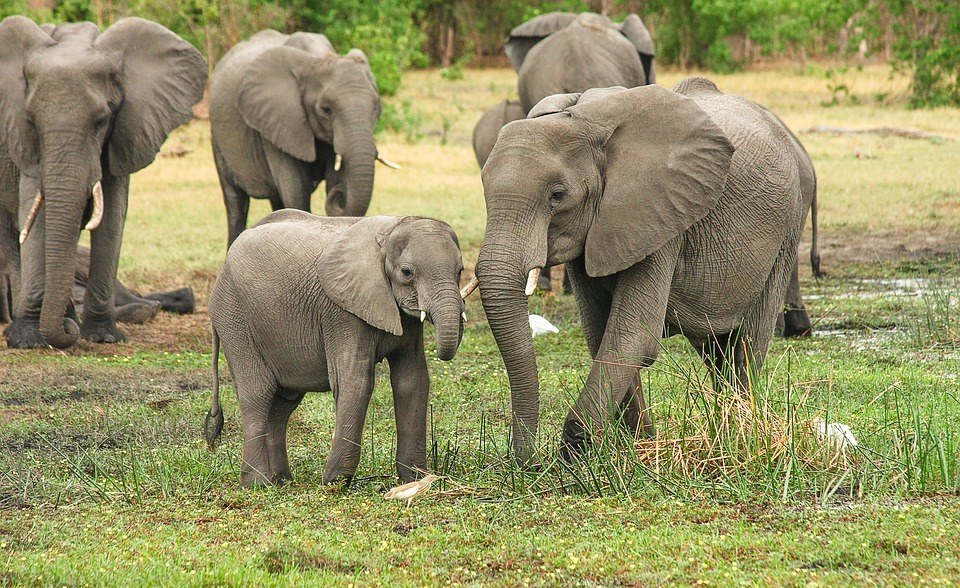Nairobi, Kenya — Scientists and conservationists in Kenya are sounding the alarm over the killing of elephants with large tusks. According to scientists, the elephants were killed by trophy hunters in Tanzania. They say other elephants in the group are in danger if they cross into Tanzania where hunting is allowed.
In a news briefing Monday, conservationists and scientists said five large-tusked elephants were targeted and killed in the last eight months by trophy hunters in Northern Tanzania.
They added that only 10 of the elephants, with tusks weighing 45 kilograms (100 pounds) each, remain in Kenya’s Amboseli National Park, which has the highest density of the animals.
Conservationist Paula Kahumbu is the chief executive officer at Wildlife Direct.
“This is bigger than Kenya, this is bigger than Tanzania. It’s actually a global issue because elephants cannot speak for themselves. We as the people of the world have to speak for these elephants. They cannot go to court; they cannot go to the east African court,” she said.
In March, Tanzanian authorities issued controversial hunting permits for the large-tusked elephants, known as “super tuskers,” in the greater Amboseli-West Kilimanjaro border area.
Festus Ihwagi, a research scientist for conservation group Save the Elephants, called on Kenya to raise the issue with Tanzania.
“They may not overhaul it immediately but for the interest of cross border conservation initiatives it would be very good if our president engaged [with] his counterpart in Tanzania and we come up with an arrangement whereby no more hunting blocks are allowed within the defined range,” said Ihwagi.
To mark the August 12 World Elephant Day, the group of scientists say they have handed the Tanzanian government a global petition with over 500,000 signatures, calling for an end to trophy hunting along the country’s border with Kenya in Tanzania’s portion of the park.
In a telephone interview, Conservation Commissioner Mabula Misungwi Nyanda of the Tanzania Wildlife Management Authority said the hunters are required to follow protocol.
“Hunting depends on whether the procedure has been followed or not. If you found them, they would explain whether they follow the procedure or not, but the animals should be protected as required.” said Nyanda.
Kenya is home to over 2,000 different species of elephants. About 600 of them, conservationists say, cross over to Tanzania regularly.
Kenya has banned elephant hunting for more than four decades. Authorities hope the campaign to stop hunting the “super tuskers” in Tanzania will help save the remaining elephant families.
Source: allafrica.com















